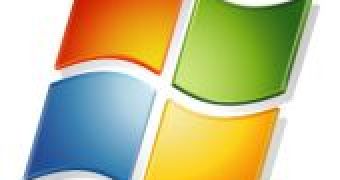Forget 64-bit, Microsoft has already been exploring 128-bit support scenarios for future releases of Windows. Of course, with Windows 7 and Windows Server 2008 R2 wrapped up since July 22nd, 2009, the official release to manufacturing date, the 128-bit wave will not affect the successors of Windows Vista and Windows Server 2008. Fact is that, with the mulling of 128-bit support for Windows, Microsoft is already looking as far ahead as Windows 8, the successor of Windows 7, and even Windows 9, which means that the Redmond company has put together at least general development directions for the next generation of Windows platforms well into the next decade.
This because Windows 8 is not expected ahead of 2011, with Windows 9 following it in 2014, in the most optimistic scenario possible. Still, Robert Morgan, Senior Research & Development at Microsoft, is already testing Windows 8 and Windows 8 128-bit support, according to his LinkedIn profile (via ArsTechnica). The profile in question has been taken down, but thanks to Google cache, users can still access it and read information about the 128-bit work done at Microsoft for Windows 8 and Windows 9 right from the source.
Here is what Morgan revealed: “Working in high security department for research and development involving strategic planning for medium and longterm projects. Research & Development projects including 128bit architecture compatibility with the Windows 8 kernel and Windows 9 project plan. Forming relationships with major partners: Intel, AMD, HP, and IBM.
Robert Morgan is working to get IA-128 working backwards with full binary compatibility on the existing IA-64 instructions in the hardware simulation to work for Windows 8 and definitely Windows 9.”
Like it or not, one of the successes that can be inherently associated with Windows Vista is that the OS tilted the balance between 32-bit and 64-bit when it comes down to Windows clients. It was Vista that ushered in the 64-bit era, and it will be the successors of Windows 7 that will make the jump to 128-bit.
Only time will tell if Windows 8 will come in 128-bit flavors. For the time being, Windows 7 is still anchored in the past, and just as Windows Vista, features its editions both in 32-bit (x86) and 64-bit (x64). If Microsoft continues to deliver Windows operating systems at the pace of one each three years, users can expect Windows 8 in 2011 or 2012. And while the Redmond company is bound to cut 32-bit support in the future for the Windows client, just as it did server-side with Windows Server 2008 R2, it has yet to be confirmed officially that Windows 8 or Windows 9 will play nice with 128-bit processors (CPUs).

 14 DAY TRIAL //
14 DAY TRIAL //